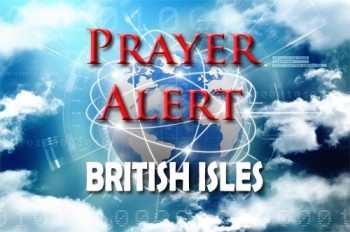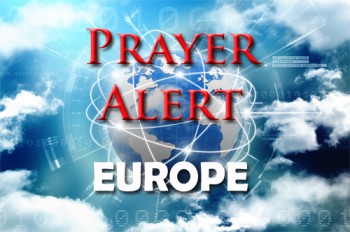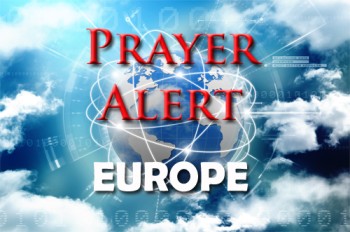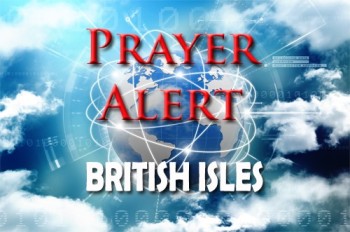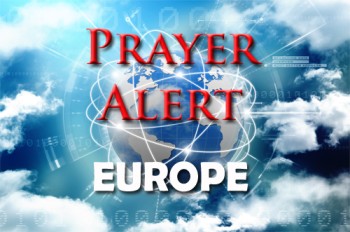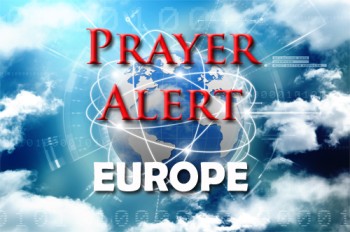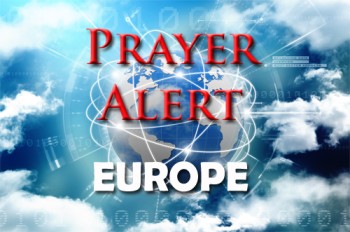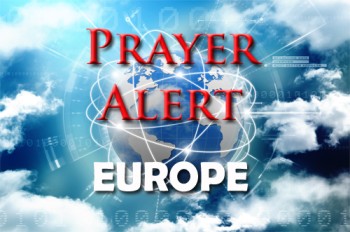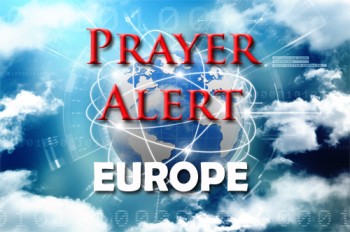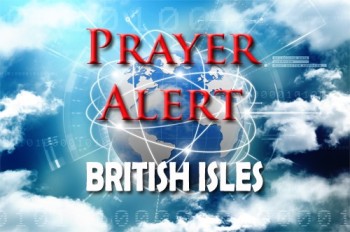Displaying items by tag: EU
EU 'the biggest prize', Reeves says
Rachel Reeves has described closer trade relations with the EU as 'the biggest prize' for the UK economy, signalling Labour’s desire for further alignment with Europe. She said that while deals with India, the USA, and other nations are welcome, none compare in scale to improving trade with the EU, which accounts for nearly as much UK trade as the rest of the world combined. She favours removing barriers for businesses and rebuilding trust with European partners, citing renewed participation in the Erasmus programme and plans for a Youth Mobility Scheme as signs of progress. Though Labour’s manifesto rules out rejoining the single market or customs union, several senior figures have suggested deeper integration could boost growth. Critics accuse the Government of attempting to dilute Brexit, warning against surrendering tariff control or repeating complications seen in other customs arrangements.
Ukraine claims significant gain as European leaders meet
Ukraine has reported a significant battlefield development, with its armed forces reclaiming control over nearly 90% of the strategically important city of Kupiansk in the Kharkiv region. Commander-in-Chief Oleksandr Syrskyi announced the advance during a meeting with international allies, crediting targeted ‘search-and-strike’ operations and the resilience of his troops. Kupiansk, close to the Russian border, has long been a critical logistical hub and a focal point of intense fighting. Analysts say the Ukrainian gains could ease pressure on nearby frontline areas and disrupt Russian supply routes, though the wider conflict remains volatile, especially as winter conditions worsen. The update shows the fluid and contested nature of the war and the ongoing human and strategic costs of the conflict. Ukraine has also claimed to have destroyed a Russian submarine in the Black Sea: see Meanwhile, in a crucial summit on 18 December, at the time of writing European leaders are deadlocked on the thorny issue of whether to use frozen Russian funds to help Ukraine. See
France seeks delay to EU-Mercosur trade agreement
France is seeking to delay a vote to ratify the long-negotiated EU–Mercosur trade agreement, arguing it threatens farmers and risks inflaming domestic unrest. The deal with Argentina, Brazil, Paraguay, and Uruguay was concluded a year ago after talks dating back to 1999. Supporters say it would open South American markets to European cars, machinery, and wines at a time of US tariffs and rising Chinese competition. Opponents, led by France, warn that cheaper agricultural imports produced under looser standards could undercut European farmers and encourage environmental harm. Protests are intensifying: as many as 10,000 farmers are expected to descend on Brussels as leaders meet. Although the European Commission has proposed safeguards, Paris calls them insufficient and is urging a postponement to secure stronger protections. The timing of the vote coincides with efforts by Sebastien Lecornu’s minority government to secure parliamentary approval for a budget, including suspending Emmanuel Macron’s controversial pension reform, before the end of 2025. Ursula von der Leyen is due to travel to Brazil on Monday next week to sign the agreement and create the world’s largest free-trade area.
No food trade deal until we get youth mobility, EU tells Starmer
Brussels has warned that no deal on easing border checks for UK food imports will be reached unless Britain agrees to expand youth mobility schemes. The proposed sanitary and phytosanitary (SPS) agreement - central to Labour’s plan to reduce food costs by 2027 - would align rules on plants, animals, and food products, cutting supermarket prices and border delays. But EU negotiators insist progress depends on allowing more young Europeans aged 18 to 30 to live and work in the UK. Cabinet office minister Nick Thomas-Symonds pressed for urgency during talks in Brussels, stressing the need for relief as food inflation has risen for five consecutive months, with key staples up 5.1% annually. European diplomats, however, argue the SPS deal is more important for Britain than the EU. Meanwhile, UK firms face possible exclusion from bidding on EU defence projects worth €150 billion unless terms are finalised soon, with France resisting UK involvement. The Government faces mounting pressure as household food costs continue to climb.
Bulgaria: von der Leyen’s plane subjected to electronic jamming
On 1 September, In what authorities suspect was Russian interference, Ursula von der Leyen’s plane was subjected to GPS jamming while landing in Bulgaria,. The flight, which landed safely using paper maps, highlighted the persistent threat of disrupting aviation traffic electronically. Russia has long been accused of such tactics, particularly in the Baltic and Scandinavian regions, though the Kremlin has denied involvement. The incident occurred during von der Leyen’s tour of eastern EU states, aimed at reinforcing solidarity with Ukraine amid ongoing Russian aggression. She said that the EU must keep up their sense of urgency, adding: ‘Putin has not changed, and he will not change. He can only be kept in check through strong deterrence.’ The event also served as a reminder of the risks faced by European leaders when showing visible support for Ukraine’s sovereignty and freedom.
Ukraine: Estonia, Lithuania, Latvia all willing to contribute troops for security guarantees
Estonia’s president, Alar Karis, has said it is prepared to contribute troops to an international reassurance force that the ‘Coalition of the Willing’ plans to send to Ukraine as a post-ceasefire security guarantee. He said Estonia is not overly concerned that this would weaken NATO’s eastern flank, though discussions with alliance leaders continue. Lithuania and Latvia are also willing to participate, but Poland has declined, citing the need to protect its own borders. The reassurance force would be deployed only in non-contact areas within Ukraine. NATO secretary-general Mark Rutte noted that while NATO itself will not formally participate, the alliance is quietly discussing how to ensure resources are not overstretched. About 80,000 US troops are currently in Europe, but there could be a reduction in numbers as Washington’s foreign policy pivots towards the Indo-Pacific. The 'Coalition of the Willing' will meet again on 4 September; the security guarantees it will aim to provide for Ukraine following a truce are almost ready, but confirmation of US support is now needed.
Greece: prime minister blocks full investigation into huge fraud scandal
A major scandal has erupted in Greece, with European prosecutors accusing senior government officials, including ministers and MPs, of orchestrating a large-scale scheme to defraud the EU of agricultural subsidies. It is claimed that individuals illegally claimed payments for non-existent or unusable pastureland, depriving legitimate farmers of support. However, those who have been accused are likely to evade justice because, despite widespread criticism, Prime Minister Kyriakos Mitsotakis is blocking a full-scale investigation, using legal loopholes and his party's parliamentary majority. A 3,000-page dossier has implicated former agriculture ministers and top officials in a coordinated effort to bypass controls, intimidate investigators, and ensure fraudulent payments were processed. Despite internal warnings and blocked payments, whistleblowers were forced out, and payments resumed under political pressure. Even though the extent of damages has not yet been assessed, Brussels has ordered Greece to forfeit nearly €400 in funding, over a fifth of the direct payments it had been due to receive next year. The case offers damning evidence that after three bailouts and a financial crisis that lasted over a decade, Greece still hasn’t cleared out the rot.
EU / USA: Trump backs away from extra tariffs – for now
Donald Trump has paused a proposed 50% tariff on EU goods, extending the negotiation deadline to 9 July after a phone call with EC president Ursula von der Leyen. She requested more time to reach a deal, which Trump agreed to, calling the EU ‘willing to negotiate’. While both sides seek a resolution, the USA remains firm on maintaining a 10% base tariff, rejecting the EU’s recent offer to eliminate industrial tariffs and boost cooperation in AI and energy. Trump’s stance stems from concerns over the EU’s significant trade surplus and regulatory barriers. Meanwhile, the EU has approved retaliatory tariffs worth billions, set to begin on 14 July if talks fail. The escalating tensions risk sparking a costly trade war, which the IMF warns could shrink GDP on both sides. EU and US officials are set to meet next month in Paris to seek resolution. In preparation for these, the EU has requested firms to give details of their dealings with US companies: see
EU: court rules against EC refusal to release text messages to Pfizer
The EU General Court has ruled that the European Commission failed to justify its refusal to release text messages between Ursula von der Leyen and Pfizer CEO Albert Bourla regarding Covid-19 vaccine contracts. The case, brought by the New York Times, has been described as a landmark in institutional transparency. The EC had argued that texts are too ephemeral for official documentation, but the court rejected this, stating that all communication must be treated as potentially subject to public access. Critics, including the EU Ombudsman, had said that the secrecy risked favouring private interests over public welfare. Previous attempts to obtain vaccine contract details had also been met with redactions and resistance. Reacting to the decision, one commentator said, '(It is) everyone’s win as this judgment is set to lead greater accountability of EU leaders' actions’.
Britain set for a new trade partnership with EU
Britain and the EU are set to formalise a new strategic partnership to strengthen trade ties and present a united front against Donald Trump's global tariff agenda. A leaked draft declaration, dated 25 April, affirms a mutual commitment to ‘free and open trade’ and to maintaining global economic stability. The agreement will be signed at a UK-EU summit on 19 May, marking a key moment in post-Brexit relations. Meanwhile, the Government is engaged in separate negotiations with the USA, aiming to soften the impact of existing tariffs - currently 10% on UK goods and 20% on EU exports. US press secretary Karoline Leavitt said that talks are ‘moving in a very positive way’. Rachel Reeves met with US treasury secretary Scott Besent last week, emphasising that both UK-EU and UK-US trade relationships are vital. Despite Trump reportedly viewing the 10% UK tariff as a minimum, British officials remain optimistic about securing a mutually beneficial deal.
